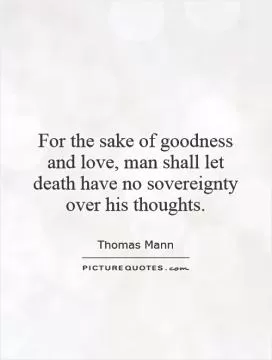He probably was mediocre after all, though in a very honorable sense of that word

He probably was mediocre after all, though in a very honorable sense of that word
Thomas Mann was a German novelist, short story writer, social critic, philanthropist, essayist, and the 1929 Nobel Prize in Literature laureate. He is widely regarded as one of the greatest literary figures of the 20th century, known for his complex and thought-provoking works that explore themes of morality, politics, and the human condition.When considering the statement, "He probably was mediocre after all, though in a very honorable sense of that word," in the context of Thomas Mann, it is important to understand the nuances of his writing and the impact he had on the literary world. Mann's works are often characterized by their depth, complexity, and intellectual rigor, making him a challenging and rewarding author to read.
Mann's writing style is known for its meticulous attention to detail, rich symbolism, and philosophical depth. His novels, such as "Buddenbrooks," "The Magic Mountain," and "Doctor Faustus," are masterpieces of modern literature that delve into the complexities of human nature and society. Mann's characters are often morally ambiguous, grappling with questions of ethics, identity, and the meaning of life.
In this sense, Mann could be considered "mediocre" in that his works do not always conform to traditional notions of literary greatness. His writing can be dense and challenging, requiring careful attention and interpretation. However, it is precisely this complexity and depth that make Mann's work so enduring and influential.
Mann's exploration of moral and ethical dilemmas, his critique of societal norms and values, and his probing of the human psyche set him apart as a writer of exceptional talent and insight. While his works may not always be easy to read or fully comprehend, they are undeniably important contributions to the literary canon.












 Friendship Quotes
Friendship Quotes Love Quotes
Love Quotes Life Quotes
Life Quotes Funny Quotes
Funny Quotes Motivational Quotes
Motivational Quotes Inspirational Quotes
Inspirational Quotes